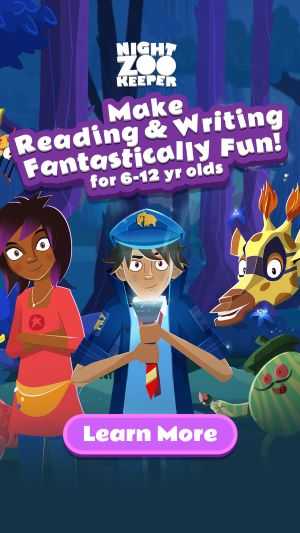Elementary Language Arts
Learn all about language arts in Grades 1 to 6

Home > Language Arts
What is English Language Arts?
English Language Arts (often abbreviated to ELA) is defined as the study of the five categories of ELA:
Language arts is often also defined as learning how to communicate ideas through the English language. ELA is distinct from ESL (English as a Second Language) studies, as ELA refers to learning performed by English-first, or English-native-proficient, students.
ELA is taught across elementary school, middle school and high school in the United States. Language arts in public schools will follow the Common Core curriculum. Each grade level will have a set of objectives to be attained by students within the year. In other countries, English language arts is typically referred to as simply “English”, and often follows a national curriculum. If you're from outside the US or follow a year-based curriculum (such as in the UK, Australia, New Zealand), visit our Primary English Curriculum.
Across the five categories, children will improve a series of sub-skills, from basic literacy skills such as understanding phonics, to using figurative language and parts of speech in their creative writing, to reading comprehension to aid critical thinking development.

What is taught in Elementary Language Arts?
The articles linked below detail the standards required at each grade level for each key skill of elementary language arts. They also feature top tips, instructional materials and activities on how to help your child attain their grade level on each skill.
Reading
At elementary level, children develop comprehension skills, fluency, phonemic awareness, and vocabulary, laying a strong foundation for their overall study of language arts.
Writing
Children learn basic composition rules and are exposed to different writing styles and genres such as storytelling, poetry, and persuasive writing. Some children may also need prewriting support. The ability to write will in turn help them in their study of other subjects that rely on basic literacy, such as history.
Spelling
Spelling is a critical component of language arts and a fundamental part of elementary level learning. Knowledge of how words are spelled enables children to both understand language and communicate effectively themselves.
Grammar
Grammar at elementary level covers topics such as sentence structure, parts of speech, linking words, and basic tenses.
Punctuation
The punctuation rules and principles covered at elementary level include capitalization, commas and end punctuation.
Why is English Language Arts important?
[full article: Why is English Language Arts Important?]
English language arts is important because it teaches all of the communication skills required for both everyday life and future education. It teaches them how to write, speak, listen, read and interpret a wide variety of content produced in a variety of contexts: from short stories, to non-fiction texts, to films, to life-like conversations. It’s possibly the most important subject your child will study in terms of real-life, everyday value. Helping your child succeed in language arts is a great thing to do as a parent.
See our language arts worksheets for free materials for your child to use to work on their skills!
Improve Language Arts Skills with Night Zookeeper
Our language arts program can be used as your homeschool language arts curriculum, or as a supplemental resource if your child attends school or uses a workbook-based curriculum.

By using a gamified and interactive experience, our award-winning program makes language arts fantastically fun for young learners, improving their reading & writing skills through thousands of language lessons, creative writing prompts, skill challenges, and word games. We also send out worksheets every month to encourage children to improve their penmanship, and offer pre-planned writing assignments to save you time and stress!
Night Zookeeper works on tablets, laptops and PCs, making it flexible and easy to access.
“Night Zookeeper is a great resource! I was looking for a language arts resource that was comprehensive, fun for the kids, and not labor intensive for me. This is it! The games are fun, while still being heavy on language arts practice. The kids enjoy creating and writing about their animals. I can see what they have been doing on my parent dashboard. My favorite part may be that my children get feedback on their writing from the Night Zookeeper team. They find something to praise and something that they can improve it with. They are rewarded for revising and improving their writing.”
- Jen, parent, US
You can try it for free with our 7 day trial!
Related articles


Make Reading & Writing Fantastically Fun!
- Award-winning reading & writing program for kids
- Improves spelling, grammar, punctuation & vocabulary
- Over 1,000 different learning games and activities



